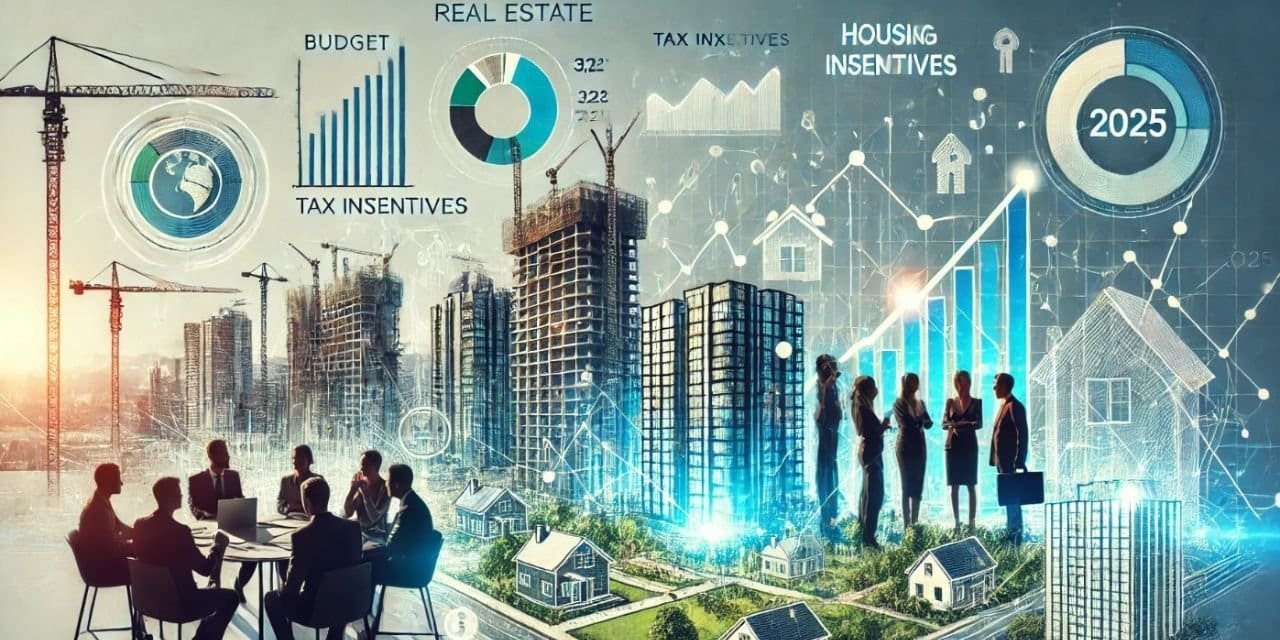The real estate industry is ablaze with anticipation for revolutionary reforms as the Union Budget approaches. As a major employer and one of the biggest contributors to India’s GDP, the sector looks forward to decisive action to tackle important issues. Initiatives to lower housing costs, streamline tax laws, and increase investment in the industry are anticipated by stakeholders.
Here are the opinions of prominent figures in the industry regarding the developments they anticipate this year.
Giving real estate industry status would be as revolutionary and could revitalize more than 200 related industries. Such acknowledgment would strengthen the sector’s standing as a pillar of the Indian economy by promoting job creation, facilitating skill development, and increasing economic activity.
A major role in India’s transition to “Viksit Bharat 2047” is anticipated for the real estate sector. By lowering developers’ tax obligations, strategic reforms like changes to the GST input tax credit rules may stabilize real estate values and increase housing accessibility. Furthermore, providing a ₹5 lakh subsidy for housing loans up to ₹1 crore would provide urban and semi-urban homebuyers with vital financial support.
The government’s “housing-for-all” goal would be strengthened and in line with changing market realities if the definition of affordable housing were expanded to encompass homes up to ₹1 crore. If put into practice, these changes have the potential to unleash enormous potential, driving the industry toward sustainable growth and making a substantial contribution to the country’s development objectives.”
Mr. Akash Khurana, President and CEO, Krisumi Corporation, says, “As the Union Budget for 2025 approaches, the government, with its view to push growth, is anticipated to introduce a slew of reforms which may boost economic activity and bring efficiency to different sectors, including real estate.
One of the biggest contributors to GDP, the real estate industry has the potential to boost growth. It is essential that the government raise the threshold to ₹5 lakh because the tax deduction on house loans has stayed at ₹2 lakh annually. This will increase home demand even further.
Because infrastructure development has a multiplier effect on the economy, we also expect the government to keep pushing for its development. An incentive for eco-friendly and green housing could increase the supply of sustainable apartments, given the government’s emphasis on sustainable development.
Mr. Sahil Agarwal, CEO, Nimbus Group, says, “The upcoming budget holds significant importance as it will be the first full-year budget of the Modi 3.0 government. We anticipate major announcements aimed at benefiting the real estate and infrastructure sectors, which are critical growth engines for the economy and support numerous allied industries.
Mr. Udit Jain, Director, One Group
Over the past few years, the prices of land and construction materials have risen sharply, not only in metropolitan cities but across the country. This, coupled with sustained demand, has significantly driven up property prices, making homeownership increasingly challenging for many. As a result, the real estate sector, particularly the housing segment, requires robust government support to make home buying more affordable for aspiring buyers.
Government intervention through targeted incentives could help alleviate the financial burden on homebuyers. One crucial area to address in the upcoming budget is the enhancement of the income tax deduction limit on home loan interest under Section 24(b), which has remained unchanged for over a decade. Increasing this limit would provide much-needed relief, particularly for buyers in high-cost urban markets.
The rationalization of homebuyer taxes and charges, which in many states amount to more than 12% of a property’s worth, should be a primary area of concentration. Although the finance minister pushed state governments to address this issue in the last budget, there hasn’t been much movement. We hope that this budget contains measures to simplify these fees and give homebuyers much-needed respite. Furthermore, we implore the government to reexamine the real estate long-term capital gains (LTCG) tax and think about offering relief in this regard.
To make the real estate industry a more alluring place to invest, steps toward GST reforms are also required. Additionally, there would be significant financial relief if the tax deduction maximum for home loan interest under Section 24(b), which is now capped at ₹2 lakh annually, was raised to at least ₹5 lakh. For buyers in urban areas, where high real estate costs require substantial home loans, this is especially important. A measure like this might encourage homeownership and increase demand.
Another long-standing demand is the introduction of industry status for the real estate sector. This would make housing more cheap for purchasers by allowing developers to access funding at more favorable rates.
The government had to think about boosting funding for the construction of infrastructure, such as last-mile connection initiatives, multimodal corridors, and metro networks. In addition to increasing urban mobility, these expenditures would boost the expansion of commercial real estate in major cities and their surrounding regions, boosting the economy and drawing in capital.
In general, a balanced budget strategy that rationalizes taxes, encourages homebuyers, and fortifies infrastructure would be essential in promoting expansion in the real estate and infrastructure industries and advancing the economy as a whole.

